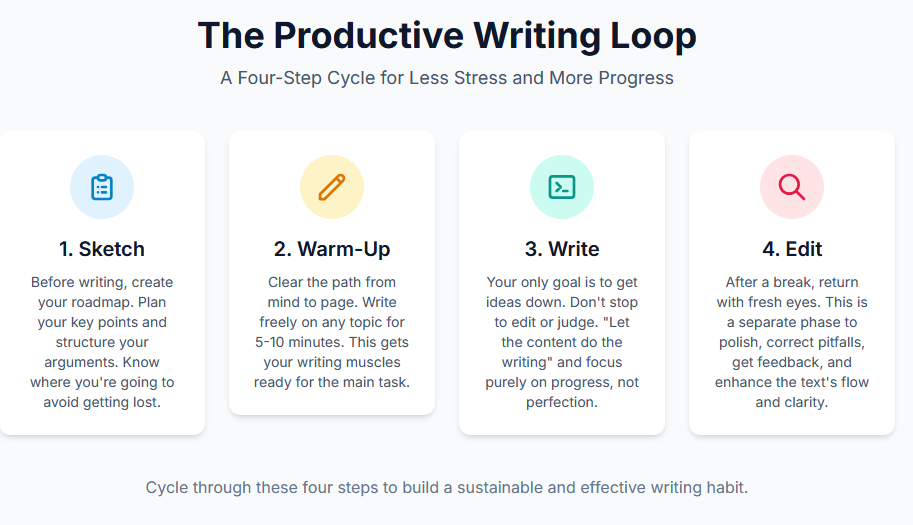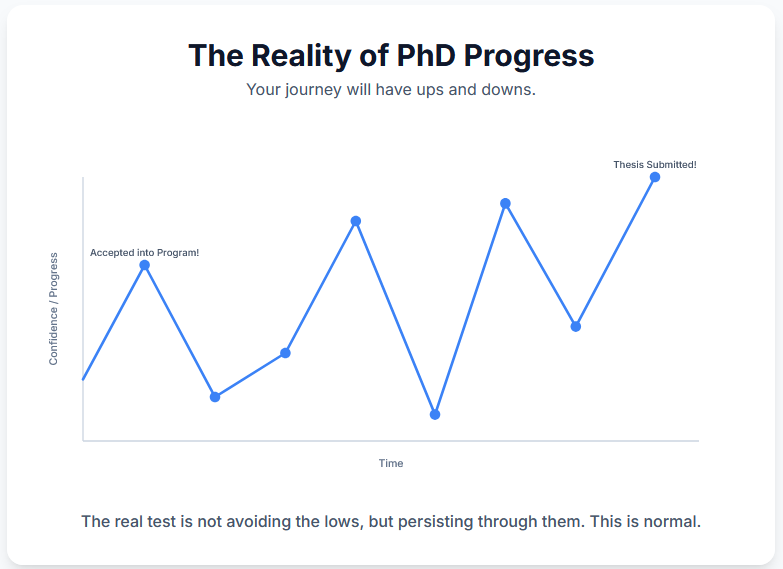Your PhD isn’t just a marathon of writing papers and conducting experiments. It is a profound journey of intellectual growth and personal resilience. Yet, for many, this path feels less like a journey and more like a nightmare of stress and self-doubt. What if you could change that? What if there were a way to work smarter, turning the entire experience from a source of anxiety into a period of successful, and even enjoyable, growth?
The solution lies not in raw intelligence, but in conscious, deliberate practice. By adopting a few powerful habits, you can build the structure and mindset needed to excel. Here are seven transformative habits to guide you.
1. Forge a True Partnership with Your Supervisor
Your supervisor is more than a manager; they are your guide through the complex world of research. A strong, respectful partnership is the cornerstone of your success. However, this relationship doesn’t build itself.
Instead of waiting for them to reach out, take the lead. Schedule regular meetings to discuss your progress and, more importantly, your process. When you ask for feedback, don't settle for vague comments. Ask directly, "What is the key thing I can do to improve this section?" to get concrete, actionable advice. This transforms your supervisor from a distant critic into a partner invested in your success. If a part of your project isn’t working, you must communicate clearly and tackle the problem together.
Key Mindset: Treat every interaction as a chance to learn. A PhD is an apprenticeship, and your supervisor is your mentor in the craft of research.
2. Frame Your PhD as a Professional Endeavour
A PhD can feel abstract and endless if left unstructured. The most effective way to combat this is to treat it like a demanding, full-time job. This means creating a clear separation between your work life and your personal life.
- Show up every day. Whether you work from an office or from home, dedicate consistent hours, like a 9-to-5 job—to your research.
- Create a dedicated workspace. An organised, distraction-free environment signals to your brain that it’s time to focus.
- Set clear, achievable goals. Use weekly and monthly targets to create a sense of forward motion and make the monumental task of a thesis feel manageable.
- Rest is part of the work. Overwork and burnout are the enemies of long-term productivity. Small, steady steps will carry you to the finish line far more effectively than exhausted sprints.
3. Aim for Contribution, Not Perfection
Many PhD candidates fall into the trap of believing their thesis must "change the world". This pursuit of a flawless, Nobel-worthy masterpiece is paralysing. Remember, the primary goal of a PhD is for you to learn and grow as a researcher. Your thesis should be a small, meaningful, and solid contribution to your field, not the final word on the subject.
Perfection is the enemy of good enough, and in research, "good enough" is what allows you to make progress. Avoid the temptation to jump to shiny new topics or endlessly polish a single paragraph. Focus on moving forward, because progress is what truly matters.
4. Think by Writing, and Share Your Thoughts Early
Writing is not just the final product of research; it is the process of research itself27. The most transformative habit you can adopt is to write before you do anything else.
Struggling to define your research question? Write it down. Your thoughts will immediately become clearer, and you'll see alternative paths you hadn't considered. Writing is a muscle; the more you use it, the stronger it becomes.
This means you must abandon the fear of the imperfect draft. Share your work with your supervisor and peers early and often, not because it's finished, but because you need their input to shape it. Early feedback is the fastest way to identify flaws before they become major problems.
The Productive Writing Loop
- Sketch: Before you write, plan what you need to say. Outline your key points or create a milestone structure.
- Warm-Up: Spend 5-10 minutes writing freely on any topic to get into the flow and clear the path from your mind to the page.
- Write (Without Judgment): Write your section based on your sketch. Your only goal is to get the ideas down. Do not stop to edit or correct yourself.
- Edit: After a break, return to your draft with a clear task: to edit and polish the text. This is a separate activity from writing.
5. Build Your Support Network (Because You Can't Do This Alone)
One of the biggest myths of academia is that of the lone genius. The reality is, you can never do this alone. Your peers, lab mates, and senior researchers are your most valuable resources because they have faced the exact same challenges.
Asking for help is not a sign of weakness; it’s a sign of a smart, efficient researcher. Whether you're struggling with a complex concept or need advice on data analysis, someone in your network has likely found a solution41. Furthermore, don't forget the official resources your university provides, such as writing centres and data services. Collaboration and mentorship will open doors and solve problems faster than you ever could on your own.
6. Protect Your Focus by Saying "No"
Your time and attention are your most precious assets. Opportunities will constantly appear—new committees, teaching assistantships, workshops—and while some are valuable, you cannot do them all.
Your core research must remain the top priority. This means you must become ruthless in protecting your focused work time. Turn off your phone notifications, close unnecessary tabs, and shut your door464646. Politely decline commitments that do not directly contribute to your thesis. This isn't about being unhelpful; it's about recognising that your primary commitment is to finishing your PhD.
7. Remember: It's 90% Persistence, 10% Intelligence
If you were accepted into a PhD program, you are already smart enough. The true challenge of a PhD is not intellectual brilliance but psychological endurance. It is about showing up day after day, especially on the days when you feel frustrated, lost, or defeated.
You will face hurdles. Papers will be rejected, experiments will fail, and some days will feel like you've made no progress at all. This is not a sign that you are failing; it is a normal, expected part of the scientific process. The people who finish their PhDs are the ones who trust the process, embrace the struggle, and just keep going.
The PhD Journey is Not a Straight Line
Your Next Step
Your PhD is a marathon, but it's also a unique opportunity for growth. Don't try to implement all these habits at once. Start small. Choose just one or two to focus on this week. Every small, consistent improvement will compound over time, building a foundation for a successful and rewarding PhD journey.
Frequently Asked Questions (FAQ)
- How do I start a difficult conversation with my supervisor about our working relationship?
Start by framing it positively and collaboratively. Request a meeting specifically to discuss your working process, saying something like, "I'd love to find a few ways we can work together even more effectively. Could we chat for 30 minutes about our meeting structure and feedback process?" This frames it as a shared goal, not a complaint. - What is a realistic daily writing goal?
This varies, but consistency is more important than volume. Instead of a word count, try a time-based goal. Many find that even a focused 30-60 minutes of writing each day makes a huge difference. The key is to make it a non-negotiable part of your routine. - How can I say 'no' to new commitments without damaging my reputation?
Be polite, professional, and direct. You can say, "Thank you so much for thinking of me for this opportunity. It sounds fascinating, but I need to keep my focus entirely on my core research at the moment to meet my deadlines." This shows you value the offer while reinforcing your commitment to your primary goal.



